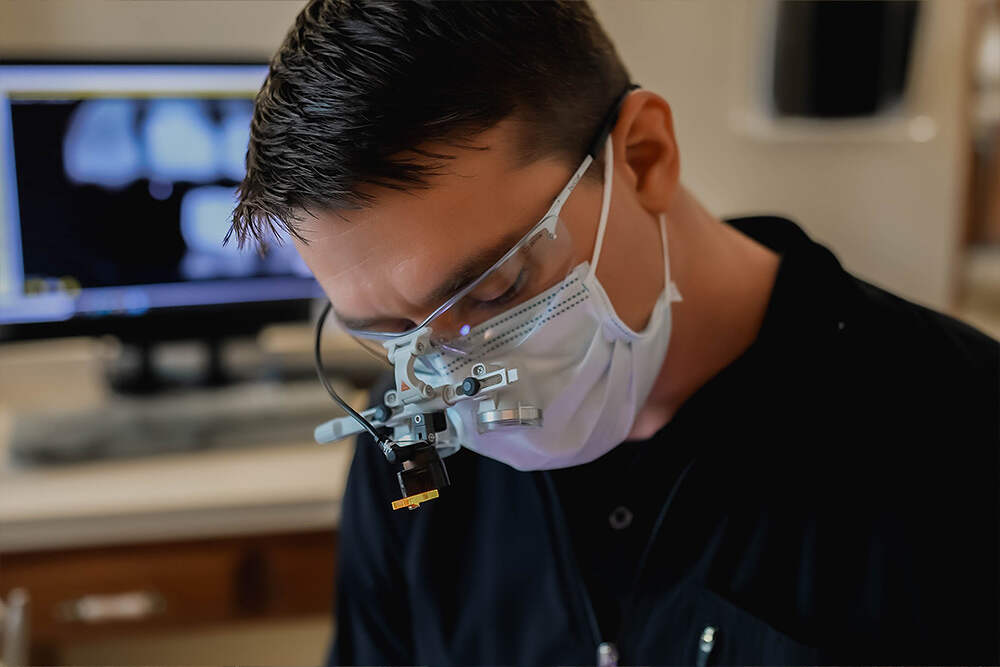Sedation Dentistry
Ease Your Dental Anxiety with Sedation Dentistry
At Woodland Dentistry we understand that many people experience dental anxiety that ranges from moderate discomfort to a true phobia that may prevent them from prioritizing their dental care. Woodland Dentistry specializes in reaching out to those people who may avoid their oral health due to fear of the dentist. Sedation Dentistry may be the solution to consider.

Sedation Dentistry is typically the best solution for persons that may require help to overcome their dental phobia and anxiety. Typically, the people who benefit most from sedation dentistry are:
- Anxious or dental phobic patients
- A strong gag reflex
- Persons requiring complex dental treatments that may require long dental appointments
Dr. Geyen is highly qualified to offer sedation options for his patients. He completed a dental residency with a focus in sedation dentistry. This included didactic, clinical and hospital training taught by anesthesiologists, nurse anesthetists, oral surgeons and other practicing sedation dentists. This unique experience allows Dr. Geyen to provide patients of the surrounding Alexandria community and greater Douglas County the optimal dental experience.
Benefits of Sedation Dentistry
Dr. Tyler Geyen offers three Levels of Dental Sedation
1) Nitrous Oxide (Laughing Gas): This option is most commonly used by patients who experience mild dental anxiety. Patients often describe their experience as calming and euphoric. Nitrous Oxide is a very safe option that allows patients to be competent to drive home following their dental appointment.
2) Oral Sedation: Oral sedatives typically help patients become more relaxed during the dental procedure. Patients typically are given the medication one hour prior to the dental procedure. The typical sedation experience ranges from the patients feeling relaxed to having little to no recollection of the procedure.
3) Intravenous (IV) Sedation: IV Sedation is beneficial because the patient drifts into a state of deep relaxation that allows them to remain unbothered by the procedure being performed, but at the same time allows them to remain responsive to sound and sight. It is very safe in that the patient is conscious enough to respond to commands and can communicate with the dentist at any point. However, the medications may produce partial or even full memory loss so no recollection of the procedure is evident. This produces a very safe option for patients to receive dental care in a comfortable, relaxed environment.
